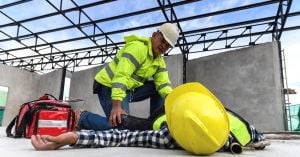Bavaria has once again demonstrated its electoral prowess with remarkable voter turnout during the recent Bundestagswahl. According to the Landeswahlleiter, the turnout reached 84.5 percent, surpassing the national average by two percentage points. This significant participation marks the highest level since 1990, reflecting the political engagement of Bavarians.
The election saw the CSU (Christian Social Union) firmly retain its position as the leading party, garnering 37.2 percent of the votes. This victory was particularly pronounced when compared to other parties, with the AfD (Alternative for Germany) securing 19.0 percent, followed by the Greens at 12.0 percent, the SPD (Social Democratic Party) with 11.6 percent, and the Left Party at 5.7 percent. Notably, both the Free Democrats (FDP) and the Free Voters experienced setbacks, failing to cross the 5 percent threshold.
Highlighting the spread of support, CSU’s Dorothee Bär emerged as the ‘first votes queen’ by obtaining over 50 percent of the first votes cast in her constituency of Bad Kissingen. This remarkable win reflects the party's enduring strength among its core voters. Further, Emmi Zeulner, another CSU representative, earned the second highest count of first votes nationally, achieving 49.3 percent in Kulmbach.
Even with the CSU's triumph, concerns arose over the electoral system's fairness, which Markus Söder, CSU chief, lamented. He expressed frustration after learning the party could secure only 44 seats from its 47 district victories—leading to calls for electoral reform, which he described as ‘undemocratic.’
Meanwhile, the AfD made substantial gains, especially within eastern Bavarian constituencies, securing their best results primarily in less populated areas. Their strongest showing came from the district of Deggendorf, where they captured 29.2 percent of the second votes—an indication of their increasing influence, particularly among rural voters.
Turning to the Left Party, they unexpectedly claim seven seats in the Bundestag, marking their strongest showing ever within Bavaria's typically conservative voter base. They collected 5.7 percent of the votes—which, though low, indicates shifting dynamics as more voters are willing to support leftist ideals.
The political scene may also see notable shifts as the election has triggered conversations about future alliances. While the CSU is grateful for its win, many are already speculating on potential coalitions considering their decreased dependence on Green support after the recent vote.
Notably, the election results could result in significant changes with the subsequent early mayoral election set to occur, prompted by the new Bundestags representative for Traunstein, Siegfried Walch of the CSU. His assumption of duties at the national level has created vacancy concerns, with local leaders contemplating candidacies for the position.
With third party participation at the polls, minor parties like Volt and the ÖDP gained traction but remained below the threshold for representation. Volt managed to earn only 0.6 percent of the second votes, primarily popular among urban areas like Munich and Würzburg, reflecting their niche appeal. Meanwhile, the ÖDP captured nearly 50,000 first votes across Bavaria, indicating their relevance among environmentally conscious voters.
This election is pivotal for Bavaria, illustrating the rising power of both the AfD, as they develop more appeal across infrequent voters, and the Left, gaining support even amid a traditionally conservative electorate. A broader ideological schism is becoming visible as Bavarians engage more actively with their political representatives, undoubtedly making future elections increasingly competitive.
Overall, these results highlight the complex nature of Bavarian politics—strong local loyalties still matter, but citizens are also willing to shift their allegiances, reflecting the changing needs and perspectives throughout the region.



